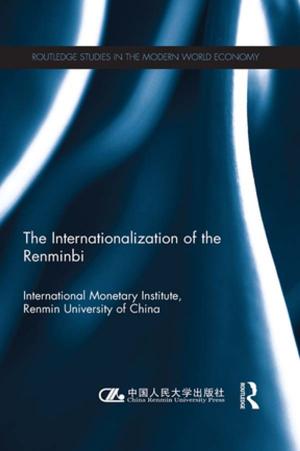Islam and Postcolonial Discourse
Purity and Hybridity
Fiction & Literature, Literary Theory & Criticism, Poetry History & Criticism| Author: | Esra Mirze Santesso, James McClung | ISBN: | 9781317112563 |
| Publisher: | Taylor and Francis | Publication: | January 27, 2017 |
| Imprint: | Routledge | Language: | English |
| Author: | Esra Mirze Santesso, James McClung |
| ISBN: | 9781317112563 |
| Publisher: | Taylor and Francis |
| Publication: | January 27, 2017 |
| Imprint: | Routledge |
| Language: | English |
Largely, though not exclusively, as a legacy of the 2001 attack on the World Trade Center, Islamic faith has become synonymous in many corners of the media and academia with violence, which many believe to be its primary mode of expression. The absence of a sophisticated recognition of the wide range of Islamic subjectivities within contemporary culture has created a void in which misinterpretations and hostilities thrive. Responding to the growing importance of religion, specifically Islam, as a cultural signifier in the formation of a postcolonial self, this multidisciplinary collection is organized around contested terms such as secularism, Islamopolitics, female identity, and Islamophobia. The overarching goal of the contributors is to facilitate a deeper understanding of the full range of experiences within Islam as well as the figure of the Muslim, thus enabling a new set of questions about religion’s role in shaping postcolonial identity.
Largely, though not exclusively, as a legacy of the 2001 attack on the World Trade Center, Islamic faith has become synonymous in many corners of the media and academia with violence, which many believe to be its primary mode of expression. The absence of a sophisticated recognition of the wide range of Islamic subjectivities within contemporary culture has created a void in which misinterpretations and hostilities thrive. Responding to the growing importance of religion, specifically Islam, as a cultural signifier in the formation of a postcolonial self, this multidisciplinary collection is organized around contested terms such as secularism, Islamopolitics, female identity, and Islamophobia. The overarching goal of the contributors is to facilitate a deeper understanding of the full range of experiences within Islam as well as the figure of the Muslim, thus enabling a new set of questions about religion’s role in shaping postcolonial identity.















